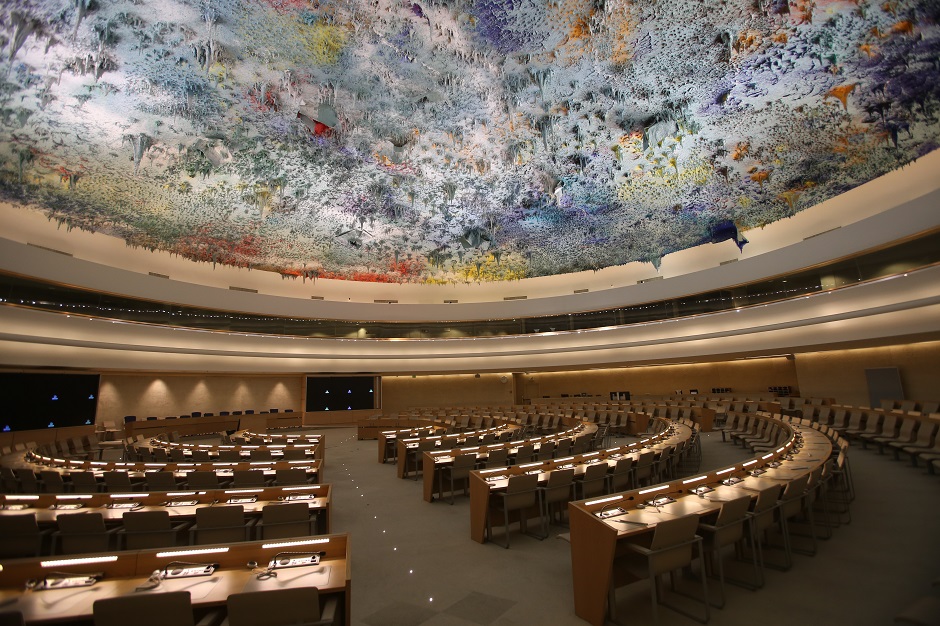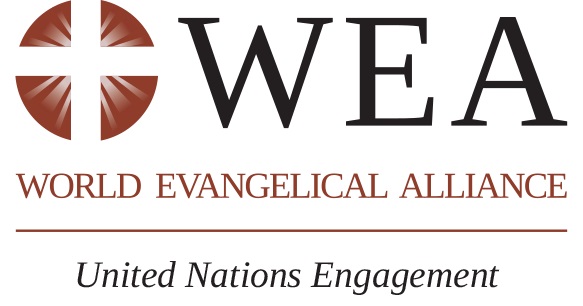The UN backs “gender self-determination” in a new report
Addressing the Human Rights Council, the UN Expert backs “intersectional gender analysis”. The World Evangelical Alliance says Christians believe “human beings are created male and female” and defends the “freedom to express this belief in the public square”.
GENEVA · 25 JUNE 2021 · 12:51 CET

“There is nothing in this definitional system that restricts gender to women”. This is one of the main ideas found in the newest United Nations report on sexual orientation and gender identity (commonly known as SOGI).
The document was prepared by the “Independent Expert on protection against violence and discrimination based on sexual orientation and gender identity” of the United Nations, Victor Madrigal Borloz.
He presented the report on Gender Theory titled “The Law of Inclusion” on 24 June in a dialogue on the issue with the UN Human Rights Council in Geneva. As in previous years, the occasion of the LGBT awareness month (June) was used to present a new SOGI document.
UN report identifies anti-LGBT “dominant ideologies”
For the Independent Expert, it is “evident that gender theory, gender-based approaches and intersectionality provide a framework for addressing multiple asymmetries of power (deriving from how sex is constructed and operates in societies)”.
The Independent Expert holds the opinion that those who use the term “gender ideology” are “regressing the human rights of LGBT individuals”.
At the same time, the report praises gender non-conforming people who “resist” against “dominant ideologies” (referring to “binary gender constructions”) and are therefore “affected by violence and discrimination”.
The UN report goes as far to say that “there is nothing in this definitional system that restricts gender to women” and continues to say that “evidence leads to the conclusion that all human beings live in gendered societies traversed by power hierarchies and preconceptions”.
The report also says “gender theory” will help fight “systems of violent masculinity”.
It mentions that across the world there have been many “cultural traditions” which recognise “genders that do not correspond with the male/female binary”.
The report alludes to the European Court of Human Rights, which “incorporated gender identity in its jurisprudence since 1992, first in connection with privacy and family life, and notably in 2003 through the recognition of gender identity as one of the most intimate aspects of a person’s private life”, adding that “a plethora of European Union documents relate to gender identity”, which also allude to transgender rights.
On 23 June, the report was presented in United Nations Human Rights Council. / UNHRC LGBT policies ‘not in opposition to women’s rights’
Responding to the claims of feminist groups and others, including Christian organisations, the report argues that “the work to address and ultimately eradicate violence and discrimination based on sexual orientation and gender identity is not in opposition to the human rights of women” but “legally reinforce each other”.
In the report’s final recommendations, the UN Independent Expert asks States to “provide access to legal recognition of gender identity” in areas that include “self-determination by the applicant”, in administrative processes that are “not connected with abusive requirements, such as medical certification”, and “ensure that “minors have access to recognition of their gender identity”.
Countries around the world are also recommended to “dismantle any remnants of pathologization in relation to sexual orientation and/or gender identity”.
The report presented to the 47th session of the UN HRC complements another, titled “Practices of exclusion”, presented to the 76th session of the United Nations General Assembly.
Religions finally not included as threat to LGBT people
In the “call for inputs” prior to the writing of the final report, the Independent Expert had posed a series of “key questions” that in some cases pointed to religious groups as a threat.
One of these was: “Are there examples where the concept of gender has been used in religious narratives or narratives of tradition, traditional values or protection of the family to hinder the adoption of legislative or policy measures aimed at addressing or eradicating violence and discrimination based on sex, gender, sexual orientation and gender identity?”
Another previous question to frame the report was: “Are there initiatives taken by States in connection with the right to freedom of religion, belief or conscience (including the figure of conscientious objection) that have had the practical impact of limiting the enjoyment of human rights (including sexual and reproductive rights) of LGBT persons?”
Nevertheless, the final report did not allude to religious groups or teachings.
Critical reactions
Over 500 contributions from States, non-State stakeholders, organisations, and individuals, were sent to the UN in the open submissions time prior to the writing of the report.
Nine of the ten organisations given a right to speak at the Human Rights Council session on 24th June were clearly in favour, with the Spanish Catholic group HazteOir being the only one that was critical.
Another organisation that responded with a critical approach, was the Transatlantic Christian Council (co-sgined with other Christian organisations from Netherlands, Switzerland, Albania and Kenya) which said: “From the first sentence on gender is introduced as theory, which wording contains the claim of verifiable science. It portrays gender as a social construct or socially created. We believe that gender theory is an ideology. On a scientifical basis we believe that sexes are based on biology. We also believe that God created human beings male and female”.
The issue of LGBT rights and their promotion has been a very controversial issue on a global scale, especially in the case of the application of trans policies which, according to many pro-woman organisations, have seriously affected the protection of girls and women.
WEA in Geneva: “Human beings are created male and female”
The World Evangelical Alliance (WEA) is represented in the Human Rights Council in Geneva (Switzerland) where it adds to the dialogue happening in all kind of human rights related issues.
In a statement sent to Evangelical Focus, Advocacy Officer of the WEA, Wissam al-Saliby, said: “All people are created in the image of God and therefore are of inestimable value and worth. The WEA upholds the teaching of the Bible which says that human beings are created male and female, and that sexual relationships are to be enjoyed in a heterosexual marriage”.

The World Evangelical Alliance represents 600 million evangelical Christians to the United Nations. Therefore, “evangelical Christians communicate this truth and make a defense for their faith with humility, grace, love, gentleness and respect. We recognize that we have not always lived up to this challenge. Our public engagement and advocacy is grounded in the hope we have in God and in His promises, not in earthly systems of governance, in legislation or in rulers”.
The WEA representative adds: “We also believe in our freedom to express this belief in the public square. Such an expression should in no way be viewed as a call to discrimination, or a call to hatred”.
“Finally, we believe in dialogue and constructive engagement. The WEA and our national alliances are willing to engage with governments, civil society organisations and UN experts on such matters instead of putting up barriers”.
Published in: Evangelical Focus - world - The UN backs “gender self-determination” in a new report
Since you are here…
Evangelical Focus is a news and opinion platform that brings together Christians from across Europe and other parts of the world. We need the support of our readers to make this media project sustainable in the long term. You can support our work! Read about Evangelical Focus’s sustainability here.
Would you like to support the work of Evangelical Focus?
Use one of these methods. You can also transfer your donation to “Areópago Protestante / Evangelical Focus” IBAN: ES8521000853530200278394 (Swift / BIC: CAIXESBBXXX). Subject: “Donation Evangelical Focus”
